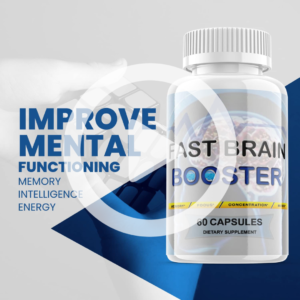Our brains are remarkable organs that define our intelligence, personality, and overall well being. Just like any other part of our body, the brain requires care and attention to stay sharp and healthy. In this article, we will explore ten essential brain health tips to help you maintain a sharper mind throughout your life.
Understanding Brain Health
Before delving into the tips, it’s crucial to understand what brain health is all about. Brain health encompasses various aspects that contribute to optimal cognitive function, memory retention, and overall mental wellbeing. It’s not just about preventing diseases but also enhancing your cognitive abilities and quality of life.
Tip 1: Maintain a Balanced Diet
A balanced diet plays a fundamental role in brain health. It provides essential nutrients that fuel brain function. Ensure you consume a variety of foods rich in antioxidants, Omega3 fatty acids, vitamins, and minerals. These nutrients protect your brain from oxidative stress and inflammation, promoting better cognitive function.
Tip 2: Stay Hydrated
Dehydration can impair brain function and cause memory problems. Drink an adequate amount of water throughout the day to stay hydrated. Dehydration can lead to cognitive decline, so keep a water bottle handy.
Tip 3: Get Adequate Sleep
Quality sleep is crucial for memory consolidation and overall cognitive function. Aim for 79 hours of uninterrupted sleep each night. A well rested brain is more alert, focused, and capable of retaining information.
Tip 4: Regular Exercise for Brain Health
Physical activity benefits not only your body but your brain as well. Exercise increases blood flow to the brain, which delivers essential nutrients and oxygen. It also promotes the release of chemicals that support brain health.
Tip 5: Stress Management
Chronic stress can be detrimental to brain health. Explore stress management techniques like meditation, deep breathing, or yoga. Reducing stress helps protect your brain from the negative effects of cortisol.
Tip 6: Cognitive Stimulation
Engaging in mentally stimulating activities like puzzles, reading, or learning a new skill can improve cognitive function. Regular mental challenges help keep your brain in top shape.
Tip 7: Social Engagement
Social interaction is beneficial for brain health. It stimulates the brain, enhances emotional wellbeing, and can even reduce the risk of cognitive decline. Spend time with friends and loved ones regularly.
Tip 8: Adequate Sleep
A well rested brain functions optimally. Prioritize sleep and establish a bedtime routine to ensure you get the rest you need.
Tip 9: Brain Boosting Foods
Certain foods are known to boost brain health, such as blueberries, nuts, and fatty fish. These items are rich in nutrients that support cognitive function.
Tip 10: Mindfulness and Meditation
Practicing mindfulness and meditation can help reduce anxiety and improve focus. These techniques promote a calmer mind and a sharper memory.
Conclusion
Incorporating these brain health tips into your lifestyle can make a significant difference in your cognitive function and overall well being. Remember that a healthy brain leads to a happier, more fulfilling life.
FAQs
-
How can I improve my memory quickly?
To improve your memory quickly, try techniques like chunking information, using mnemonic devices, and getting adequate sleep.
-
Are there any specific brain boosting supplements I should take?
- While some supplements may support brain health, it’s essential to consult with a healthcare professional before adding them to your regimen.
-
Can brain exercises like puzzles really make a difference in cognitive function?
- Yes, brain exercises like puzzles and crosswords can enhance cognitive function and memory retention.
-
Is it possible to reverse age related cognitive decline?
- While complete reversal may not be possible, adopting a brain healthy lifestyle can slow down age related cognitive decline.
-
How long does it take to notice improvements in brain health after making these changes?
- The timeline for noticing improvements in brain health varies from person to person, but consistent efforts can yield positive results in a few weeks to months.


